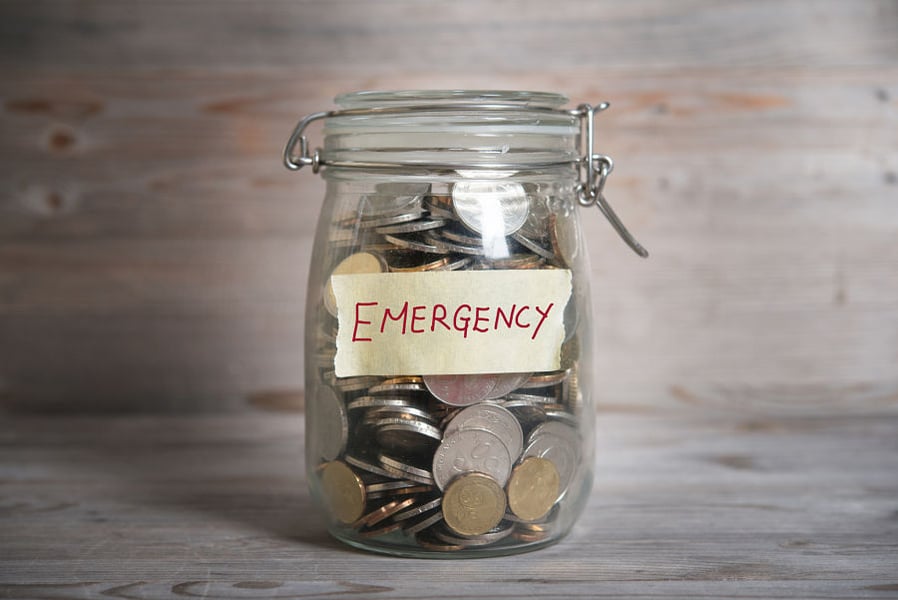

In the 1990s and 2000s, the industry was developing quickly, and 401(k) record keepers competed heavily on features. There was a race to be the first to offer the next shiny object, like brokerage accounts, to distinguish themselves and gain market share.
Today, when a new feature that seems attractive, like managed accounts, most providers adopt it quickly. Even though there is little advantage to the first adopter, record keepers still want to provide an array of services that ultimately benefit the participant.
One of the most recent examples is emergency savings accounts, currently offered by Prudential and MassMutual Retirement, which was acquired by Empower. It would benefit the defined-contribution world to cooperate to develop best-of-breed options and make them widely available.
But how can the industry cooperate?
One example is Build Commonwealth, a 20-year-old not-for-profit focused on helping those earning low to moderate incomes, which is a partner in BlackRock's Emergency Savings Initiative. That initiative has experienced dramatic growth because of the pandemic, surging to more than 30 partners, with the vast majority joining in 2020, including Voya Financial, which was the first record keeper to join.
The case for emergency savings accounts has always been compelling. When low- to moderate-income workers run into problems, they either take out loans or make hardship withdrawals, contributing to plan leakage. The pandemic only highlighted the issue.
“There was incredible volatility as a result of the pandemic, with some people needing a place to put their stimulus check,” said Tim Flacke, executive director at Commonwealth.
“The personal savings rate surged in 2020 with a peak of 33.6% in April, compared to an average of 7.4% in 2019, according to the Bureau of Economic Analysis,” Flacke wrote in an email followup.
Voya joined BlackRock's Emergency Savings Initiative as a result of interest from their plan sponsor client UPS in offering an after-tax option to all employees at the end of 2020.
“Commonwealth understands consumer behavior,” said Jeff Cimini, head of institutional product at Voya Financial.
“We have found that those that have emergency savings feel more financially secure,” Cimini said. “The more secure people have a 50% higher deferral rate [12% versus 8%], and those that feel insecure are 13 times more likely to take out a loan.”
There are many questions about how to design and offer emergency savings accounts, including investments, auto features, accessibility and optimally providing a tax benefit. Why not apply the lessons learned in DC plans and automatically enroll all employees until they save two to three months of income?
That is why the initiative is so critical. Rather than take a piecemeal, competitive approach, why not leverage a not-for-profit to help with innovation and product development as well as advocacy?
Plan sponsors dislike loans, not just because of the harm they do to retirement income, but because of the administrative burdens they pose.
Along with health savings accounts, emergency savings accounts and student loan repayment plans have the chance to really help change behavior and put teeth into financial wellness programs.
Retirement plan advisers can play an important role. They need to push record keepers to offer emergency savings accounts, but just as importantly, they should also push them to join BlackRock's Emergency Savings Initiative.
Because the real competition for DC providers and RPAs is not each other — it's the federal government, which periodically threatens to nationalize the DC system using the Thrift Savings Plan. If we can't get our act together, then the government will do it for us, just as many states have done with their multiple employer plans and auto-IRA programs.
Fred Barstein is founder and CEO of The Retirement Advisor University and The Plan Sponsor University. He is also a contributing editor for InvestmentNews’ RPA Convergence newsletter.

Relationships are key to our business but advisors are often slow to engage in specific activities designed to foster them.

Whichever path you go down, act now while you're still in control.

Pro-bitcoin professionals, however, say the cryptocurrency has ushered in change.

“LPL has evolved significantly over the last decade and still wants to scale up,” says one industry executive.

Survey findings from the Nationwide Retirement Institute offers pearls of planning wisdom from 60- to 65-year-olds, as well as insights into concerns.
Streamline your outreach with Aidentified's AI-driven solutions
This season’s market volatility: Positioning for rate relief, income growth and the AI rebound
